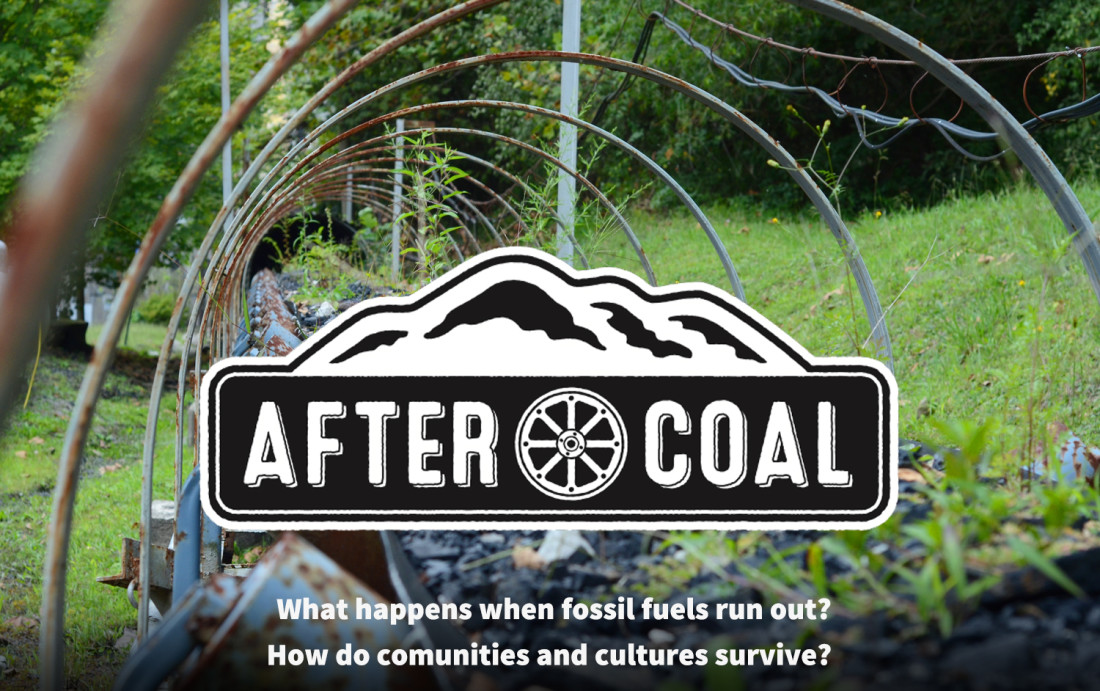Press release from Swannanoa Valley Museum & History Center:
On October 9, the Center for Appalachian Studies at Appalachian State University in partnership with the Swannanoa Valley Museum & History Center will screen an hour-long documentary entitled After Coal at the White Horse Black Mountain. The film profiles inspiring individuals who are building a new future in the coalfields of eastern Kentucky and south Wales. The film will be accompanied by several short documentaries produced by students in the Appalachian Studies program at Appalachian State University.
The featured documentary seeks to answers the questions: What happens when fossil fuels run out? How do communities and cultures survive? After Coal invites viewers to the front lines of the transition away from fossil fuels. Coalfield residents who must abandon traditional livelihoods share stories from the front lines of the transition away from fossil fuels.
Viewers will meet ex-miners using theater to rebuild community infrastructure, women transforming a former coal board office into an education hub, and young people striving to stay in their home communities. Music plays a major role in this documentary essay, linking the two regions – eastern Kentucky and south Wales – and providing cultural continuity that sustains communities through rapid change.
After Coal is a project of the Center for Appalachian Studies at Appalachian State University. Fiscal sponsorship for the film was provided by The Southern Appalachian Labor School and the Southern Documentary Fund. After Coal is funded in part by the Chorus Foundation, West Virginia Humanities Council, and United States Artists.
The documentary will be screened along with student films from the Appalachian Studies Program at Appalachian State University at the White Horse Black Mountain, 105c Montreat Road at 3:00pm on Sunday, October 9. Admission is free and donations are accepted for the Beaver/White Scholarship Fund, which provides support for Appalachian Studies students to research topics related to the Appalachian region.




Before you comment
The comments section is here to provide a platform for civil dialogue on the issues we face together as a local community. Xpress is committed to offering this platform for all voices, but when the tone of the discussion gets nasty or strays off topic, we believe many people choose not to participate. Xpress editors are determined to moderate comments to ensure a constructive interchange is maintained. All comments judged not to be in keeping with the spirit of civil discourse will be removed and repeat violators will be banned. See here for our terms of service. Thank you for being part of this effort to promote respectful discussion.